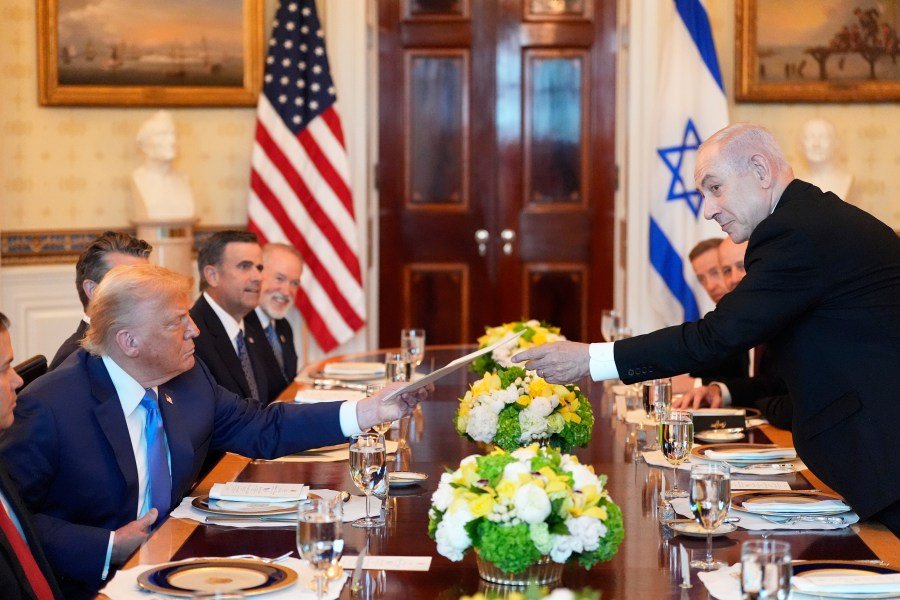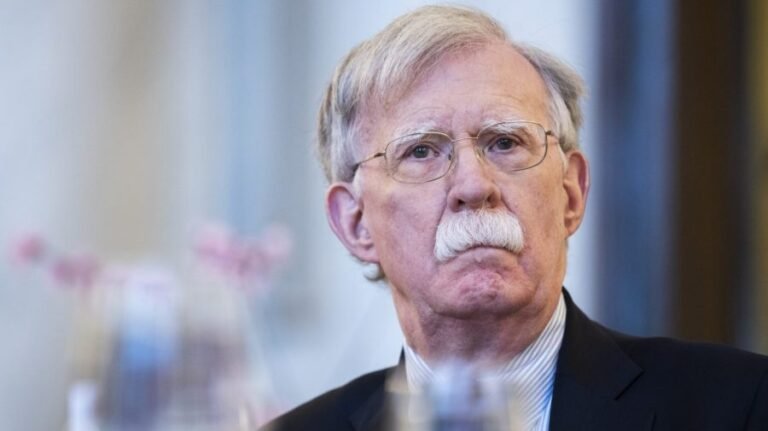
Related video: Trump cites ‘disagreement’ with Starmer on Israel-Gaza during joint press conference
It is exceedingly difficult to comprehend why Israeli Prime Minister Benjamin Netanyahu ordered an airstrike on a group of Hamas leaders meeting in Doha. These men were negotiating with representatives of Mossad, Israel’s intelligence agency, to bring a halt to the conflict in Gaza. And the Mossad had refused to mount a ground operation to kill them.
Multiple reports indicated that Netanyahu had previously demanded that Hamas leaders go into exile. Indeed, he told Time Magazine in August 2024 that “If Hamas laid down its arms, surrendered, went into exile, the war would be over immediately.” Yet after the attack, what incentive would any Hamas leader have to go into exile, knowing he would still be a target for Israeli assassins? In such circumstances, the leadership might conclude that it would be better to fight to the death in Gaza than to be killed in exile.
Netanyahu’s motivations are no secret. He is not ready to stand down military operations after nearly two years of war. His political survival and his ability to avoid a possible conviction for bribery depend upon his remaining prime minister. Yet he cannot stay in office if his government falls. And its survival continues to depend on extremist right wing ministers who both press for the continuation of the war and openly advocate ethnically cleansing the entire strip.
Nevertheless, there is an element of irrationality in Netanyahu’s behavior. It is not only that the Doha attack disincentivized Hamas leaders from going into exile and risked further alienating Israel’s allies and the American public — both Democratic legislators and a growing number of Republicans. Nor is it only that attacking Qatar, host to America’s largest air base in the Middle East, risked alienating even President Trump, who berated the prime minister in a phone call just after the attack.
It is also that the war itself is exhausting the Israeli military, especially reservists who have served multiple tours in Gaza.
It has been reported that of the 20,000 soldiers wounded in Israel’s operations since the Oct. 7, 2023 Hamas attack, nearly two-thirds are reservists. Moreover, more than 10,000 IDF soldiers have been treated for mental health issues since the attack. Indeed, the Israeli Defense Ministry has reported that 35 per cent. of the wounded since that date have post-traumatic stress disorder or other mental disabilities. At least 28 soldiers have committed suicide since the war began.
Several recently retired senior Israeli military leaders have asserted that the country’s military objectives were achieved months ago. Had Israel’s operations been brought to a halt, thousands of Palestinians would still be alive, fewer Israeli soldiers would have been killed, wounded or traumatized, and at least some of the living hostages would have returned to the families while the dead were granted a proper burial.
Netanyahu appears to be following in Nero’s footsteps. His countrymen continue to suffer on and off the battlefield as he needlessly extends the war rather than truly seeking its termination.
Since Netanyahu will not negotiate an agreement of his own accord, Washington must force his hand. After all, Israel continues to rely on American taxpayer money to the tune of 3.5 billion dollars annually. While some in Israel, including even Netanyahu himself, have argued that the country should wean itself off American military assistance, that is unlikely to happen any time soon. And while Bernie Sanders and other Democrats in the Senate and House would cut off military aid to the Jewish State, that too is a non-starter.
With a complete cutoff out of the question, the Trump Administration could consider a partial reduction in American assistance. Because money is fungible, a token five per cent cut amounting to $175 million would signal to Netanyahu that he would have to choose between reducing funding for programs that either subsidize the ultra-Orthodox community that shields draft evaders or support West Bank settlement expansion. Or he could cut back on operating costs for the Gaza War. Adopting either the first or second option would certainly bring down Netanyahu’s government. Avoiding those two choices would force him to reduce funding for the Gaza operation.
A five per cent cut in U.S. assistance would be an initial shot across the prime minister’s bow, the first of a possible series of cuts to follow. If there is no ceasefire by the end of the year — as Steve Witkoff, Trump’s lead negotiator, has predicted — the president could match the initial cut and reduce U.S. assistance by another five percent. Should the war drag on into the spring of 2026, Washington could implement a third reduction, this time of ten percent.
Because Israel normally receives its entire assistance package at the beginning of each fiscal year, the first of these reductions could come into force in two weeks, when the new fiscal year begins. In addition, another 15 percent of that assistance could be held in escrow, only to be released when and if Israel agrees to a ceasefire.
Unlike a complete cutoff, this approach would force Netanyahu’s hand without endangering his country’s security. He would be presented with the Hobson’s choice of financing the war or cutting back on the extremist elements of his policy. But that choice would be his; Israel is a sovereign nation and the U.S. would not be dictating which budgetary alternative its prime minister should choose.
Nevertheless, if Netanyahu’s government were to fall as a result of the choice he makes, the majority of Americans, including a significant portion of the American Jewish community, will not miss him at all.
Dov S. Zakheim is a senior adviser at the Center for Strategic and International Studies and vice chairman of the board for the Foreign Policy Research Institute. He was undersecretary of Defense (comptroller) and chief financial officer for the Department of Defense from 2001 to 2004 and a deputy undersecretary of Defense from 1985 to 1987.






